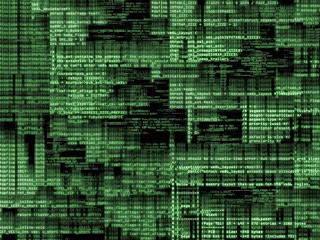This Place Where You Are Right Now
This place where you are right now
God circled on a map for you.
Wherever your eyes and arms and heart can move
against the earth and the sky,
The Beloved has bowed there –
knowing you were coming.
I could tell you a priceless secret about
your real worth, dear
But any unkindness to yourself
any confusion about others,
Will keep one from accepting
the grace, the love
The sublime freedom
divine knowledge always offers to you.
This is a wondrous truth of the world.
Destiny is a powerful concept that I've always thought of as abstract, not rooted in veritable fact. Hafiz pens that destiny, advanced knowing, is actually knowledge. A truth that you can either accept or be blind to based on your personal conduct. Here's how one guy made a difference in the life of a homeless man by giving him a computer. Laura Willard wrote the article for Upworthy and said: "If I'd have heard about what this guy was planning to do before it all played out, I might have thought he was unrealistic. After watching the video, I realized that there's a much bigger thing at play here: We need to remember that every human being is unique and full of potential. We don't know other people's stories." The homeless man, Leo, says much can be accomplished through Faith, a higher form of Truth.
Destiny is a powerful concept that I've always thought of as abstract, not rooted in veritable fact. Hafiz pens that destiny, advanced knowing, is actually knowledge. A truth that you can either accept or be blind to based on your personal conduct. Here's how one guy made a difference in the life of a homeless man by giving him a computer. Laura Willard wrote the article for Upworthy and said: "If I'd have heard about what this guy was planning to do before it all played out, I might have thought he was unrealistic. After watching the video, I realized that there's a much bigger thing at play here: We need to remember that every human being is unique and full of potential. We don't know other people's stories." The homeless man, Leo, says much can be accomplished through Faith, a higher form of Truth.
"Do noble things, not dream them, all day long:
And so make life, death, and that vast for-ever
One grand, sweet song." - Charles Kingsley

Do you know where I could find this poem in the original Farsi?
ReplyDeleteNot sure but this may help: http://www.iranicaonline.org/articles/hafez-x?fbclid=IwAR3n6ONihpOhAiCMehh_E5AQTWz0TB_sjEAMW9XGc-Fy1AI960JPAl1xvRc
DeleteI have the same question. I have a few English translation of Hafiz poetry but can't find the Farsi eversion.
ReplyDeleteAgain, not sure, but this may help: http://www.iranicaonline.org/articles/hafez-x?fbclid=IwAR3n6ONihpOhAiCMehh_E5AQTWz0TB_sjEAMW9XGc-Fy1AI960JPAl1xvRc
ReplyDeleteApparently it doesn't exist in the original Farsi, because it isn't actually a Persian poem at all. It is falsely attributed to Hafez but he didn't write it. See here. http://www.payvand.com/news/09/apr/1266.html
ReplyDelete